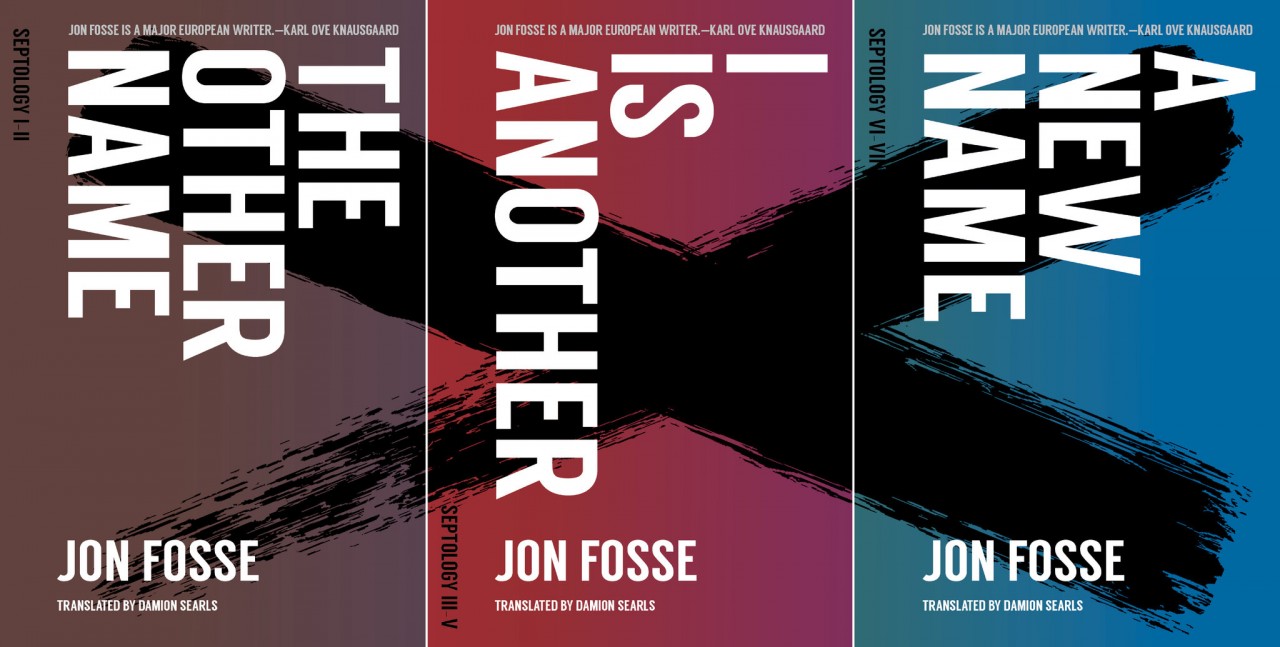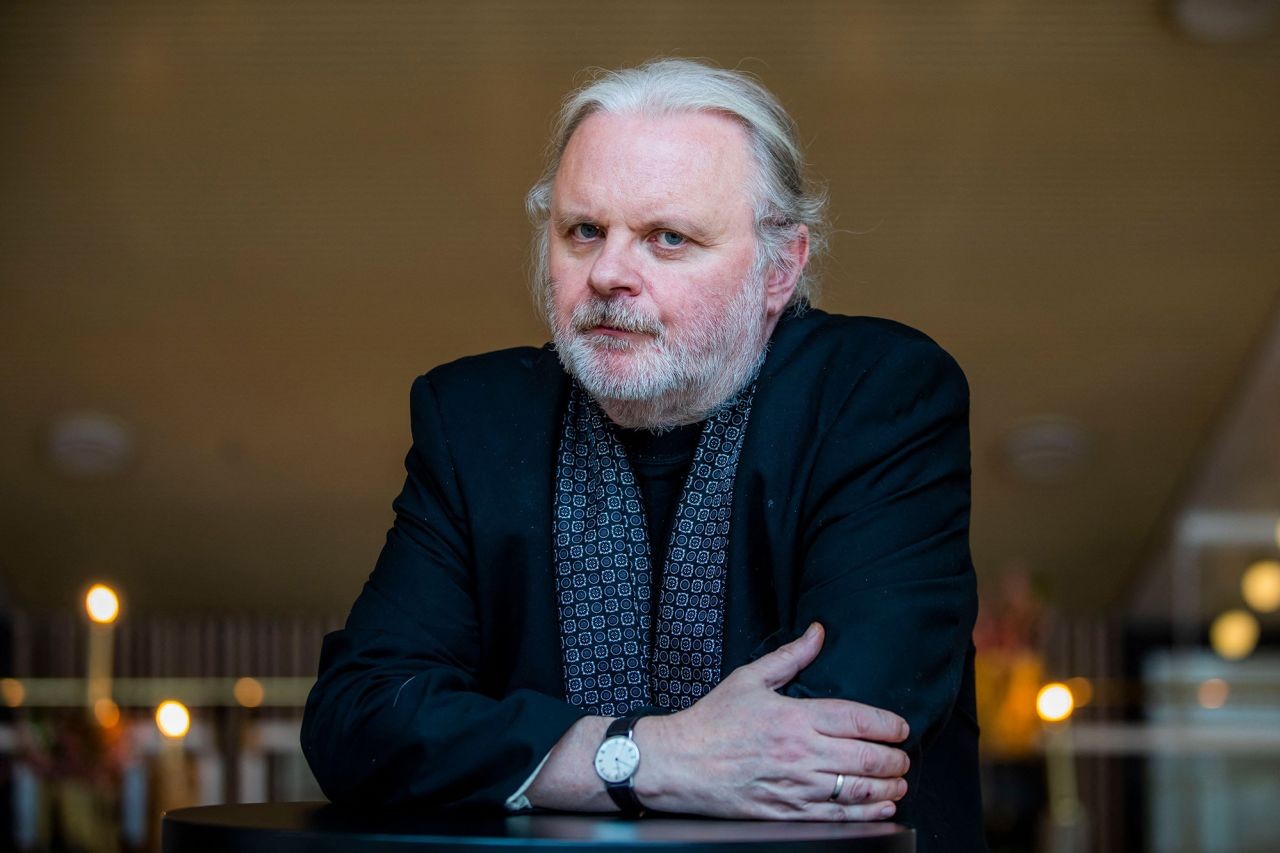“Fosse presents everyday situations that are instantly recognizable in our own lives. His radical reduction of language and dramatic action expresses the most powerful human emotions of anxiety and powerlessness in the simplest terms,” said Anders Olsson, Chairman of the
Nobel Committee for Literature.
The committee lauded the author’s style, which has come to be known as “Fosse minimalism”. His work consists of around 40 plays, as well as a number of novels, poetry, essays, children’s books, and translations.
Jacques Testard, Fosse’s fiction publisher, said on hearing the news: “He is an exceptional writer, who has managed to find a totally unique way of writing fiction. His fiction is incantatory, mystical, and rooted in the landscape of the western fjords where he grew up”.
“Fosse minimalism”
Fosse’s “magnum opus in prose” was his recent “Septology” – made up of seven parts collected in three volumes: The Other Name, I Is Another, and A New Name.
“Septology” has been praised for its formal experimentation. Fosse’s meditative prose is rarely interrupted by periods, creating an incantatory flow to his philosophical interrogation.
“The work progresses seemingly endlessly and without sentence breaks but is formally held together by recurring themes and ritual gestures of prayer,” Anders Olsson, chair of the Nobel Committee, said at the announcement news conference.
 |
| “Septology” is made up of seven parts collected in three volumes: The Other Name, I Is Another, and A New Name. |
The novel details the struggle of Asle, the narrator, to complete his painting – and compares him throughout to another Asle, who is also a painter but is consumed by alcohol, who functions as his doppelganger. The novel asks how we become the people we become by staging two versions of the same person against one another.
“While Fosse shares the negative outlook of his predecessors, his particular gnostic vision cannot be said to result in a nihilistic contempt of the world. Indeed, there is great warmth and humor in his work, and a naive vulnerability to his stark images of human experience,” the committee added.
The fourth Norwegian to win the Nobel in Literature
Fosse grew up on a small farm in Strandebarm in the Hardanger region of
Norway. At age seven, he nearly died in an accident, which he said was “the most important experience” of his childhood and one that “created” him as an artist. In his adolescence, he aspired to be a rock guitarist, before turning his ambitions to writing.
He went to high school in Øystese and studied literature at the University of Bergen.
Fosse’s first novel, Raudt, svart (Red, Black), was published in 1983, but he considers the short story ”Han” (”He”), published in a student newspaper in 1981, as his actual literary debut. Already there are many characteristic features of Fosse’s writing: repetition, inner monologue, and a musical, evocative style. Fosse continued to publish prose, poetry, and children’s books through the Eighties, but his breakthrough as an author came with the 1989 novel Naustet (Boathouse).
After having established himself as a novelist, poet, essayist, and children’s book writer, he also became a playwright. Despite having often expressed skepticism about the theater, he wrote his first play in 1992, later describing this as the greatest revelation in his writing life. Nokon kjem til å kome (Someone Is Going to Come) is the first play Fosse wrote, although Og aldri skal vi skiljast (And Never Shall We Part) was the first to be performed, at the National Theater in Bergen in 1994.
 |
| Jon Fosse at Oslo’s Norwegian Theater in September 2019. |
Fosse wrote plays at a furious pace during these years, quickly appearing on the most important Norwegian stages, and after only a few years his plays were also being performed abroad. His international breakthrough came in 1999, when French director Claude Régy staged Someone Is Going to Come in Nanterre outside Paris. The following year, the renowned Berlin theater Schaubühne put on Namnet (The Name) at the Salzburg Festival. These two productions helped pave the way for Fosse’s drama internationally.
Today, Jon Fosse’s plays have been performed all over the world. He has written more than thirty, including Namnet (The Name), Vinter (Winter), Ein sommars dag (A Summer’s Day), Draum om hausten (Dream of Autumn), Dødsvariasjonar (Death Variations), Svevn (Sleep), and Eg er vinden (I Am the Wind).
In addition to his own writing, Jon Fosse has also reviewed literature and translated many works into New Norwegian, both prose and creating his own new versions of a number of plays.
Nobel Prize in Literature Cool FactsThe Nobel Prize in Literature has been awarded 116 times to 120 different laureates since 1901. The Prize was shared four times, in 1904, 1917, 1966, and 1974, but none of these were American writers. There were seven years no prize was awarded: 1914, 1918, 1935, 1940, 1941, 1942, and 1943. The youngest Nobel Laureate in Literature was Rudyard Kipling who was 41. The oldest Nobel Laureate in Literature was Doris Lessing who was 88. She could not attend the ceremony because of a back problem, but her agent delivered her Nobel Lecture. No one has been awarded the Nobel Prize in Literature more than once. 17 women have won the prize. Two writers have declined the award, Boris Pasternak in 1958 who was forced to return it by his mother country, Russia, and Jean-Paul Satre in 1964 who declined all official recognition. After 1974, no one can be awarded the prize posthumously unless death occurs after the announcement. Winston Churchill won the Nobel Prize for Literature in 1953. |



